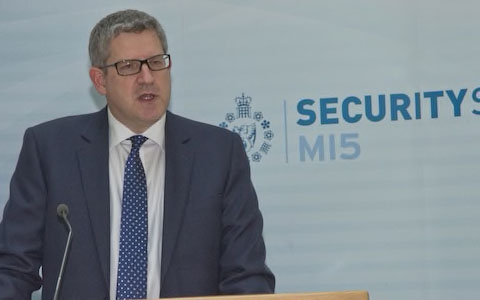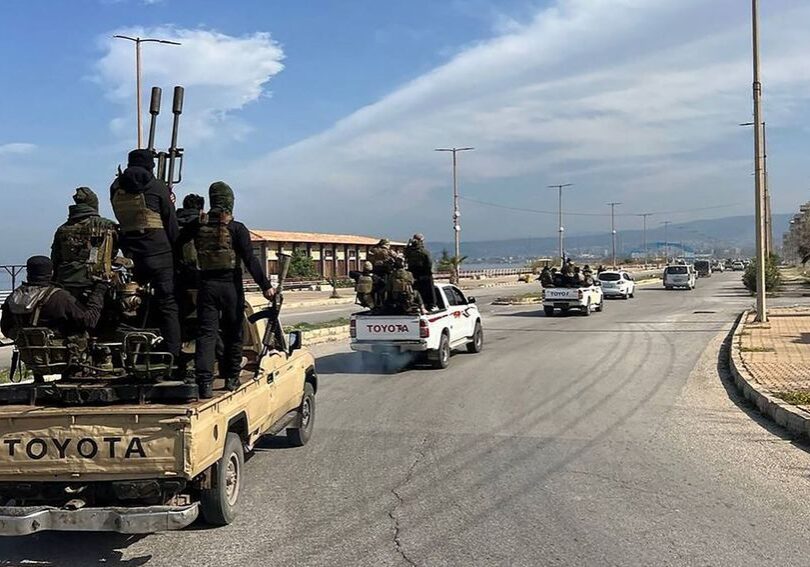Australia/Israel Review
Europa Europa: Trading in the shadows
Feb 2, 2018 | Douglas Davis

Douglas Davis
The fledgling State of Israel was once widely associated with the production of oranges and those quaint, pointy kibbutz hats. Now, the world looks to a more mature Jewish state for cutting-edge developments in science and technology across a broad range of high-tech disciplines. Less well known is Israel’s pivotal role in the field of Middle East intelligence, a commodity that exists behind a veil of secrecy.
Israeli Prime Minister Binyamin Netanyahu lifted that veil for a tantalising moment in Jerusalem last month when he told a group of ambassadors from NATO member-states what many might have already known: that Israel’s intelligence services provided information that had thwarted “several dozen major terrorist attacks, many of them in European countries.”
Some of these jihadi strikes could have been the worst kind of mass attacks ever experienced in continental Europe, said Netanyahu, because they involved threats to civilian aviation. “Israel prevented that,” he added, “and thereby helped save many European lives.”
As Europe struggles to cope with many hundreds of returning jihadis from the depleted battlefields of ISIS in Syria and Iraq, no one would have appreciated Netanyahu’s sentiments more than Andrew Parker, the head of Britain’s MI5 domestic intelligence service. He revealed that his agency is currently running no fewer than 500 live operations against 3,000 extremists, a level of intensity that was at its highest in his 34-year career at MI5.
There was “more terrorist activity coming at us more quickly” than ever, he said. It was, moreover, harder to detect. “One of the main challenges we’ve got is that we only ever have fragments of information, and we have to try to assemble a picture of what might happen, based on those fragments.”
Parker said the likelihood was that when an attack happened, it would be carried out by someone “that we know or have known” – otherwise it would mean they had been looking “in completely the wrong place.”
When an attack was perpetrated by a known suspect who had slipped down the priority list, MI5 staffers were deeply affected on both personal and professional levels, he said. “They are constantly making tough professional judgements based on fragments of intelligence; pinpricks of light against a dark and shifting canvas.”
There is no doubt that the front-line in the West’s battle against global jihadism these days is to be found inside the imposing buildings of intelligence agencies – glowing on the monitors of intelligence officers’ computers, inscribed on their white-boards, in the surveillance devices they deploy, from the mouths of informers. It is based on the excellence of their tradecraft, their techniques and methods, and on the intelligence officers’ assessments of the relative threat posed by an individual or group.
In spite of its 45-year association with the European Union, the United Kingdom considers that one of the most successful platforms for international co-operation is “Five Eyes”, an intelligence exchange involving Britain, the United States, Canada, Australia and New Zealand. Israel, which shares common threats and common values, is increasingly consulted through both formal and informal channels.
Just as Israel is increasingly consulted on intelligence matters, it is increasingly invited to participate in international military exercises, the flip side of all that intelligence work. Last month, for example, at the invitation of the Greek Navy, Israel sent three of its missile ships and crews to take part in a two-week NATO naval exercise alongside the United States, Britain, Greece, Italy, Romania and Bulgaria, with a host of non-participating international observers.
“We learned from the others, and we passed on our knowledge,” said the Israel’s Lt. Col. Yaniv Lavi. “We are improving all of the time.” NATO is interested in the Israeli Navy because it spends more time on operational missions on a regular basis than almost any other. “We operate all of the time in our combat sectors,” says Lavi. “This is unique.”
The ever-closer binding of Israel into international systems – whether commercial, industrial, military or intelligence – is an eloquent response to the caterwauling campus kids who are about to indulge in yet another spasm of mindless Israel-Apartheid nonsense around the world.
The simple fact is that while efforts to boycott, delegitimise and sanction Israel to death have continued unabated for decades, the Jewish state has emerged stronger and more vibrant. Today, the former orange-growing state is an integral part of the democratic world’s mechanisms for economic growth and self-defence against Islamist jihadism.
No doubt, there will be occasions in the years ahead when the nations of Europe will have cause to thank Israeli technology and intelligence for helping to thwart terrorist attacks that might otherwise have caused mass casualties in the air, on the ground or at sea.
In the meantime, Israel will continue to push back the dangers by taking on – and no doubt defeating – the remnants of ISIS who escaped from their shattered redoubts in Syria and Iraq and who are currently trying to re-establish a semblance of military headquarters in the Sinai Desert.
Tags: Islamic Extremism






